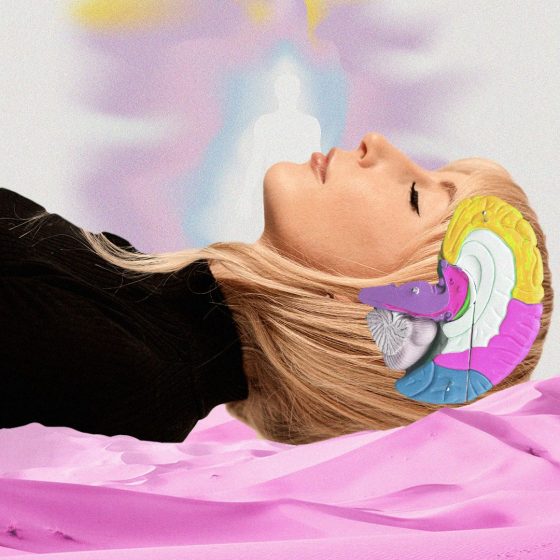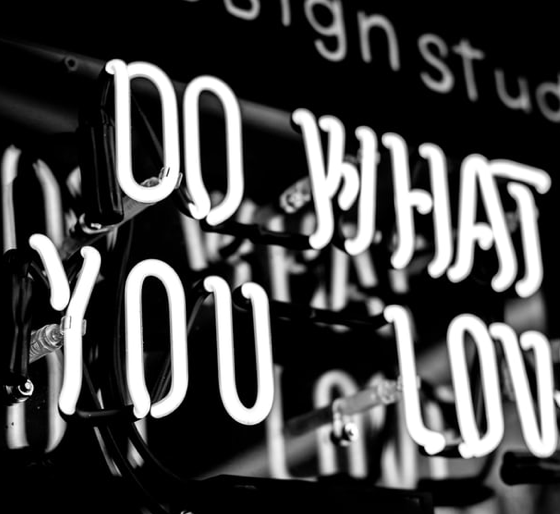Restless Network is thrilled to announce Ali Kriegsman as our very first Resident Expert! Find below her first piece for us, and if you like it (we’re sure you will) buy her new book and download the Restless Network app to access more of her indispensable knowledge.
While doing research for my upcoming book about women entrepreneurs, How to Build a Goddamn Empire, I became obsessed with a phenomenon we’ve all come to know as “impostor syndrome.” This term explains the chronic “feelings of inadequacy that persist despite evident success,” and puts a tidy little label on the insecurity that you, as a person, might somehow be “fraudulent,” or that your success may be completely unwarranted. The term came up in almost every single one of the 50+ interviews I did for the book regardless of how well-known, prosperous, or confident these female business owners were, and regardless of their race, background, means, or documented accomplishments. Even more surprisingly, every single entrepreneur who used the term spoke as though “impostor syndrome” was an internal, psychological weakness that they themselves needed to solve. It was, like getting more sleep or reducing their screen time, something they were “working on.”
The term “impostor syndrome” was coined way back in 1978 by two psychologists, Dr. Pauline R. Clance and Dr. Suzanne A. Imes. But, like a latent Toro Bravo bull, the term has now rammed its way through mainstream media outlets and viral Instagram accounts, and has become quite the hot topic for COVID-friendly virtual Zoom panels and fireside chats. Do a quick Google search for “impostor syndrome event” and you’ll see what I mean. You’ll also notice that these same media outlets, Instagram influencers and panel hosts want you to “work on” your impostor syndrome, too. It has been presented as a detrimental psychological defect women need to solve for and “overcome.” No wonder my interviewees are rolling up their sleeves – and getting to work.
But as I see it, imposter syndrome isn’t a psychological defect women entrepreneurs need to “fix” or “work on.” The phenomenon famously affects everyone regardless of gender, race, and class, but newer evidence shows that the symptoms of impostor syndrome – anxiety, stress, depression, loneliness – hit harder when you’re underrepresented in your context. This looks like Black students reporting “higher levels of anxiety and discrimination-related depression when they had significant levels of impostorism” on an urban public college campus. It looks like women in STEM asking if they’ve “proven themselves” enough, or if “they belong here.” It looks like women of color worrying they’re not welcome in corporate work environments, a reality that writers Ruchika Tulshyan and Jodi-Ann Burey explore thoroughly and thoughtfully in their recent Harvard Business Review piece.
Often, women entrepreneurs are not operating as minorities “in a given context” the way that Latina women in corporate America are, or the way that Black students are while learning on a majority-white campus. They’re often building alone – in their bedrooms, warehouses, or in the kitchen with two kids on their lap. They may work with or run a tight team as small business owners, but often, those teams are actually made up of other women. In some cases, yes, the oh-so-rare female startup founder is building a massive team from scratch and cherry-picking her “context.” But it’s not like she’s doing it in a shared office space with more well-funded male founders. For these reasons, the “female entrepreneur” doesn’t seamlessly fit the definition of someone who is underrepresented in her context, but in doing research for my book for the past three years, I’ve sensed that heightened depression, stress, and insecurity severely impacts this cohort nonetheless.
Like Tulshyan and Burey so perfectly put it, “the answer to overcoming imposter syndrome is not to fix individuals.” It’s to course-correct the context. It’s to change the environment itself. I became obsessed with finding out why these confident, entrepreneurial, hard-working women felt so…phony. Especially when so many of them controlled their lived experiences and environments.
But it wasn’t just about why they felt like frauds. As a woman and entrepreneur myself, I am very familiar with internalized “impostor syndrome.” I’m a non-technical female founder, one of the measly 2.2 percent of us who’ve received venture financing, running a technology startup that’s competing against more massive, more well-funded, and male-founded competitors. Some mornings I wake up and think, “why the f*ck am I capable of doing this? Who do I think I am?”
I’ve identified 3 key reasons why women entrepreneurs experience impostor syndrome at an alarming rate and level of intensity, despite the fact that many of them are operating in physical contexts and environments they themselves create and define.
You Can’t Be What You Can’t See
While women entrepreneurs can often define their day-to-day contexts, they have no control over disappointing macro trends that still show men owning and running more small businesses and venture-backed businesses. Women only make up 31% of all small business or franchise owners, and there are exponentially more male-founded startups than female-founded startups. And of course, they also get 90% of all venture financing.
This means that fewer women-owned businesses are hitting massive scale. The kind of scale that gets them on network television, podcasts, magazine covers, on the Fortune 500 list and the NASDAQ. Katrina Lake, Founder and CEO of Stitch Fix, noted this herself after announcing her company’s IPO. “When I was a little girl, there were no examples of somebody who looks like me doing that.” She’s ten years my senior, and when I was a little girl, I didn’t have those influences, either.
When we do see women and their businesses in the spotlight, it’s often via women-only, ranked lists like Fortune’s famous Most Powerful Women showcase, or through women-only, conference-meets-award-shows like Glamour’s Women of the Year event. I’m not trying to knock the fact that women are often celebrated while simultaneously being sectioned out. I’m just questioning whether these special lists and rankings and awards further our internalized bias that being a powerful woman, or a female business owner, is somehow the exception to the rule. Fortune doesn’t produce or rank a Most Powerful Men list, in case you were curious. Jeff Bezos and Jack Dorsey get folded into the normal, non-gendered lists, like all the other male politicians and tech founders and business leaders with public companies and public profiles.
Ultimately, the data proves that women business owners are still a minority. And even if they share a co-working space with another female entrepreneur or hire an all-female team, our larger context tells us we’re an anomaly. We’re out of place. We need to put more women business owners in the spotlight ahead of a massive exit or IPO, because men are centuries ahead of us on that front, and we must build a stronger and more equitable pipeline of female entrepreneurs to reach parity in the next few decades. We shouldn’t be reserved for special “girls only” lists or awards shows, either. We shouldn’t aspire to make the “Most Powerful Women in Business” list. We should aspire to the “Most Powerful People in the World” list, where our friends Jeff and Jack are collecting dust.
Women Are Trained to Strive for – and Serve Up – Perfection
Women business owners don’t simply self reflect and measure whether or not they’re doing a “good” job. Rather, they’re often left questioning whether or not they’re doing a “perfect” job managing their teams, scaling their operations, running their businesses, and loving their families. It seems obvious that this added pressure of peak performance would lead to higher instances of impostorism and related anxiety and depression. That’s simply what happens when you hold yourself to an unreasonable standard and fall short time and time again.
Like with impostor syndrome, we may jump to the conclusion that this measuring stick is on women to fix and revise. But studies show that women are taught to strive for and serve up perfection due to external pressures. For decades, researchers have proven that women are not only held to higher ethical standards than men, but that they’re also expected to be “warm, caring and sympathetic” as people – and as leaders. These are called “communal” traits. Men, on the other hand, are expected to be “assertive, decisive, and strong,” which classify as “agentic” traits. These biases, researchers explain, stem from centuries of socialization and the different roles men and women have come to play in families, society, work, and life.
As a woman in business, you have to be assertive. You have to make harsh judgment calls and decisive decisions. There is simply no way around it. For female entrepreneurs, this means you’re constantly juggling the pull to go “agentic” and the push to remain “communal.” When powerful and public women do show agentic traits, they’re often criticized by their employees, the media, and other outside critics, much like Co-founder and former CEO at Away Steph Korey was, as showcased in this piece by The Verge. Meanwhile, when men like Jeff Bezos exhibit similar characteristics – being harsh on customer support staff, demanding long hours, and using pressing language to convey a point – they’re hailed as visionaries. Bezos notoriously asked employees on his customer success teams: “Why are you wasting my life?” “Are you lazy or just incompetent?” “Did I take my stupid pills today?” His “explosive” reactions, “hyperbole,” and “harshness” make him a “brilliant founder” according to The Everything Store: Jeff Bezos and the Age of Amazon, a book about his life – and the press coverage that followed.
Women founders know and feel these external pressures to be perfect while attempting the delicate balance of the communal with the agentic. And, exacerbating these pressures, women business owners see what happens when you lose your footing and your balance breaks. This external pressure to fit a mold, do the impossible, serve up perfection and do it with a smile exacerbates the stress and anxiety associated with impostor syndrome. Because for these women leaders, it’s not just about delivering and doing your best. It’s about doing it perfectly, as defined not only by themselves, but by their eager onlookers.
Women Feel Pressured to Make It Look Easy
When starting my business in 2015, I felt inadequate, incompetent and ill-equipped to handle the problems and pressures coming my way. This was, in large part, because while I was putting out unexpected fires every day, staying up until midnight, pacifying angry customers and getting stress-related finger herpes (really, actually), I saw other women business owners flaunting their rapid growth, new packaging, or big press piece on Instagram, getting glammed up for meetings and making it all look easy. “Am I missing something? Why is this so hard for me and seemingly seamless for them?”
The truth is, entrepreneurship is a slog, a grind, and a rollercoaster no matter who you are, but women, especially, feel a need to convey an “effortless perfection” where there is none. This isn’t surprising. There’s a silent assumption that the more well-lit your photos are – the more staged, the more aspirational, the more idealized – the higher your engagement. Founders apply the same assumption to their business content. If you open the Instagram account of any given female founder or small business owner you know, chances are their grid leads you to believe that everything’s fine, they’re thriving, and that their products are beloved by all. Even in a global pandemic.
It could be that women are continuously conveying this “effortless perfection” to get likes, grow their audiences, and build more social proof and validation with their customers. But I often wonder if there’s simply a disincentive to be real, authentic and honest about the highs and lows of running a business, and doubly so for women.
I try to be as candid and realistic on my Instagram as possible, while still acknowledging that I have a team, investors and other stakeholders to answer to. I can’t discuss a hard conversation with an underperforming employee, for example, as that obviously crosses a line. But a few years ago, a female investor told me that my current “level” of authenticity might mislead the press, turn off our customers, or scare away investors, explicitly citing other household name founders I should “mirror” who were always poised, reserved, buttoned-up, and dressed to the nines. It had never occurred to me that by being myself – by being authentic, and discussing the warts of my business or my anxious episodes – that I could be screwing over our bottom line. Perhaps this has occured to other women business owners from the jump, and I’m simply behind the curve.
The pressure to convey “effortless perfection” means, in a nutshell, that women business owners are all living our true, real lives, but comparing them to someone else’s “effortlessly perfect” business. It’s a sick, twisted cycle wherein I feel the pressure to be perfect, try to be perfect, show other people that I’m perfect, and business owners at the other end of the screen feel the pressure to be perfect, try to be perfect, show other people that they’re perfect, and continue the vicious cycle over and over again. No wonder women entrepreneurs feel like impostors. We’re putting on a show for each other and treating the highlight reels like goalposts.
Where We Go From Here
In order for women entrepreneurs to sufficiently “tackle” their impostor syndrome, a verb so beloved by the articles, panels and Instagram posts on the matter, we need our environment to change. We need our context to shift.
We don’t need uplifting mantras, candy-colored Tik Toks, exhausting Clubhouse discussions or “Women in Business” lists. These are mere bandaids, and they may in fact be contributing to the “effortless perfection” so many people – female business owners included – expect women entrepreneurs to embody and perform.
We need to build a pipeline of more women-owned small businesses, female startup founders and corporate leaders. We need the companies they run to be handed the funding, teams, mentors and opportunities to reach massive scale, so they can IPO and make bank like Katrina Lake did, despite lacking role models who succeeded in doing the same. We need our teams, and the media, to hold us to the same ethical and character standards as men. We should not be uniquely penalized for our agentic moments or traits when men are praised as visionaries when they showcase similar – or even worse – behavior. We need banks and credit-bearing institutions to give Black women more small business loans, and we need venture capitalists to open up their pockets and eke out more than 1% of financing to Black founders, and 2% of financing to Latinx founders. We need to get high-growth companies and their female founders on network television. We need to give BIPOC female founders more book deals so they can tell their own stories and inspire younger generations of women. We need to make it okay for women to want to be rich, capitalist-minded masterminds who use the system to their benefit, and who, in return, help even the corporate playing field.
“Impostor syndrome” is not an internal, psychological weakness for women business owners to solve by attending panels and starting accomplishment logs and journaling on the weekends. If you’re a female founder or entrepreneur and you feel like an impostor – listen up – it’s not your fault. And you’re not the solution.
Your internalized sense of fraudulence is the result of generations of male-dominated capitalism and commerce telling you that you don’t belong. So let’s take the next few decades to get what’s ours. Let’s let the business world know that we’ve arrived, and that, despite our ingrained sense of phoniness – we’re legit. And we belong here.









